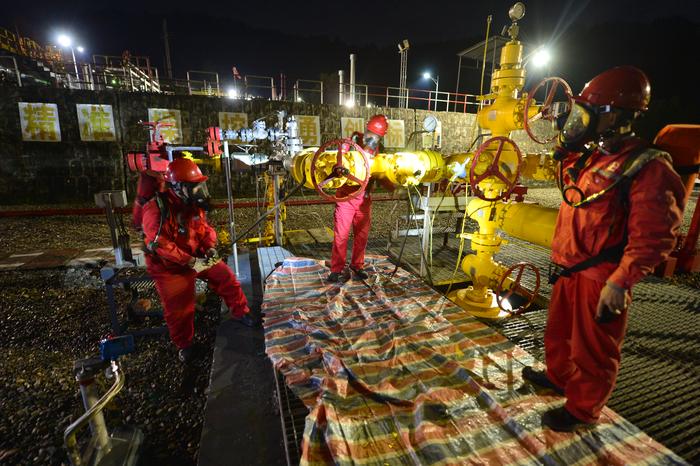|
| 2019-12-05 来源: 中国石化新闻网 |
| 石化新闻 |
|
中国石化新闻网讯 据路透社12月4日马德里报道,周三公布的一项研究显示,美国和欧洲煤炭使用量的意外下降,帮助减缓了今年全球二氧化碳排放量的增长,中国和印度的需求疲软也起到了一定作用。 这份报告是在马德里举行的联合国气候峰会上发布的。报告显示,对石油和天然气需求的增长意味着,世界距离大幅减少温室气体排放以避免灾难性的全球变暖还有很长的路要走。 尽管如此,美国和欧洲的煤炭使用量大幅下降,帮助将二氧化碳排放的预期增速从前一年的2.1%降至2019年的0.6%。 这份名为《 2019年全球碳预算》的报告称,消耗全球一半煤炭的中国需求增长放缓,加上印度整体经济增长疲软,也帮助减缓了排放量的上升速度。 “2019的二氧化碳排放量的微弱增长是由于全球煤炭使用量的突然下降,但这种下降不足以克服天然气和石油消费的强劲增长,”奥斯陆气候研究中心CICERO研究主任Glen Peters说。 彼得斯补充说,2019年全球化石燃料产生的二氧化碳排放量可能比2015年增加4%以上。2015年通过了应对气候变化的《巴黎协定》。 该报告由全球碳项目研究小组发表在若干学术期刊上,其中包括自然气候变化,该报告代表了2019年度二氧化碳排放量增加的首次全年预测。 这组作者表示,可再生能源和电动汽车最近的增长充其量只是减缓了化石燃料排放量的增长。如果世界要实现《巴黎协定》的温度目标,化石燃料排放必须迅速下降。 该研究还估计,森林火灾和其他土地使用变化的排放在2019年增至60亿吨二氧化碳,比前一年多出约8亿吨,部分原因是亚马逊和印度尼西亚的火灾。 伦敦帝国理工学院格兰瑟姆研究所的气候变化讲师Joeri Rogelj淡化了排放增长每年波动的长期意义。 Rogelj说:“今年的小幅放缓确实不足为奇。” “如果这种放缓背后没有任何结构性变化,那么科学告诉我们,排放量将继续以平均水平逐渐增加。” 李方征 编译自 路透社 原文如下: Growth in global carbon emissions slowed in 2019 A surprise drop in coal use in the United States and Europe has helped to slow the growth of global carbon dioxide emissions this year, with softening demand in China and India also contributing, according to a study published on Wednesday. The report, launched at a U.N. climate summit in Madrid, showed that growing appetite for oil and gas meant the world was still far from achieving the drastic reductions in greenhouse gas emissions needed to avert catastrophic global warming. Nevertheless, coal use fell sharply in the United States and Europe, helping slow the projected growth in carbon dioxide emissions to 0.6% in 2019 compared with 2.1% the previous year. Slower growth in demand in China, which burns half the world’s coal, and India, combined with overall weaker economic growth, also helped slow the upward march of emissions, said the report, known as the Global Carbon Budget 2019. “The weak growth in carbon dioxide emissions in 2019 is due to an unexpected decline in global coal use, but this drop is insufficient to overcome the robust growth in natural gas and oil consumption,” said Glen Peters, research director at Oslo-based climate research centre CICERO. Peters added that global C02 emissions from fossil fuels were likely to be more than 4% higher in 2019 than in 2015, the year when the Paris Agreement to tackle climate change was adopted. Published by the Global Carbon Project research group in several academic journals, including Nature Climate Change, the report represents the first full-year estimate of the increase in carbon dioxide emissions in 2019. The authors said that recent growth in renewable energy and electric vehicles had served — at best — to merely slow the growth in fossil fuel emissions, which must fall rapidly if the world is to meet temperature goals in the Paris accord. The study also estimated that emissions from forest fires and other land-use changes rose in 2019 to 6 billion tonnes of CO2, about 0.8 billion tonnes more than the previous year, driven partly by fires in the Amazon and Indonesia. Joeri Rogelj, a lecturer in climate change at the Grantham Institute, Imperial College London, downplayed the long-term significance of annual fluctuations in emissions growth. “The small slowdown this year is really nothing to be overly enthusiastic about,” Rogelj said. “If no structural change underlies this slowdown than science tells us that emissions will simply gradually continue to increase on average.”
|








